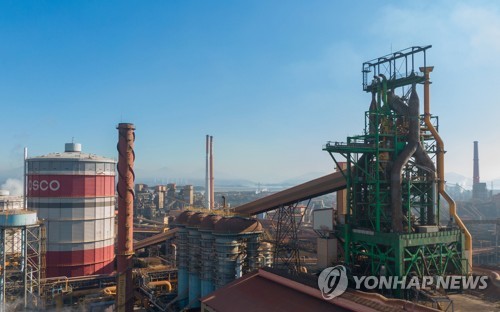
(Sejong=Yonhap Infomax) Eun Byul Yun – Gwangyang, a city in South Jeolla Province, has been designated as an 'Industrial Crisis Preemptive Response Zone' due to the downturn in its core steel industry.
The Ministry of Trade, Industry and Energy announced on the 20th that, following a review by the Industrial Crisis Response Committee, Gwangyang will be designated as an Industrial Crisis Preemptive Response Zone for two years, effective from today until November 19, 2027.
This marks the fourth such designation, following Yeosu in South Jeolla, Seosan in South Chungcheong, and Pohang in North Gyeongsang Province.
The government recently unveiled a steel industry advancement plan on the 4th to address global oversupply, U.S. steel tariffs, and the EU’s low-carbon transition and related trade barriers.
South Jeolla Province applied for the designation on October 1, citing the crisis facing Gwangyang’s steel sector.
Gwangyang relies on the steel industry for 88.5% of its production, 97.5% of its exports, and 9.7% of its employment. The local economy, heavily concentrated in steel, has contracted sharply due to increased imports of low-priced steel, falling unit prices, and sluggish domestic demand.
The Ministry reviewed the application under the 'Special Act on the Promotion of Regional Industrial Crisis Response,' conducted on-site inspections in Gwangyang, held working-level consultations with relevant ministries and local governments, and finalized the designation through the committee’s deliberation.
As a result, the government will prioritize emergency management stabilization funds, local investment promotion subsidies, and enhanced policy-based financial support for small and medium-sized enterprises (SMEs).
Policy financial institutions will offer maturity extensions and repayment deferrals to SMEs, while Korea Credit Guarantee Fund and Korea Technology Finance Corporation will provide preferential guarantee programs for partner companies and small business owners.
Additionally, tailored support will be provided through regional industrial crisis response projects, including interest subsidies and measures to strengthen corporate competitiveness.
Other support programs—such as R&D, management consulting, and employment stabilization—needed to help the region overcome the crisis will be actively reflected in next year’s budget and beyond.
ebyun@yna.co.kr
(End)
Copyright © Yonhap Infomax Unauthorized reproduction and redistribution prohibited.

